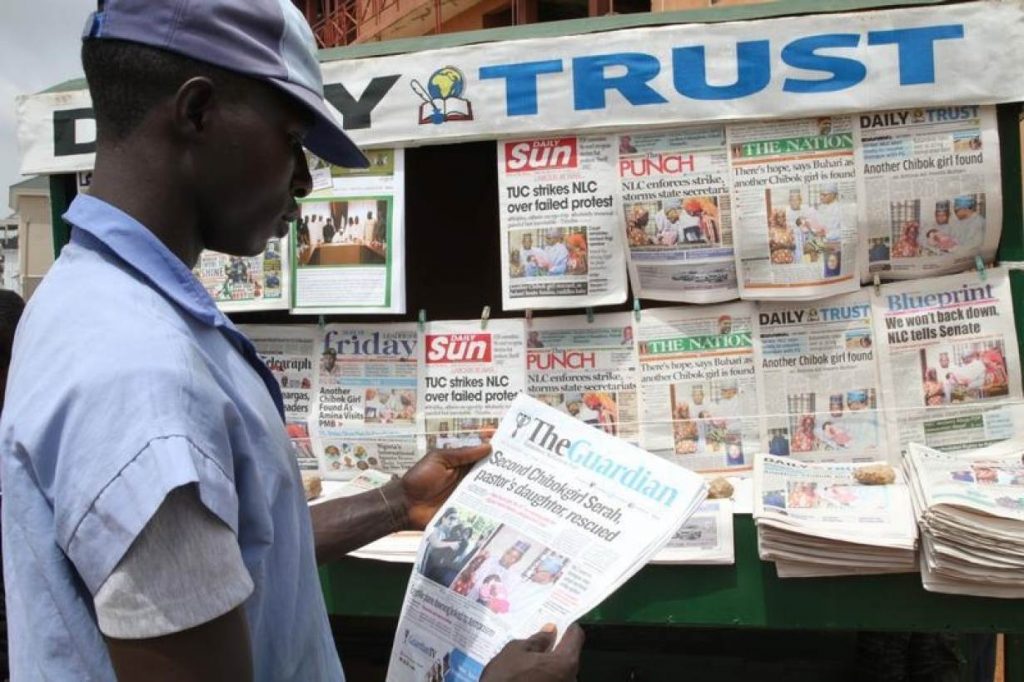Afolabi Sotunde/Reuters
By
Prince Charles Dickson
In recent times the Nigerian news media and social media feeds are bombarded with images of spectacular extremist violence and increasingly aggressive and bellicose rhetoric from politicians and pundits. This coverage warrants a close look, as public discourse sinks to new lows in justifying violence against entire racial and religious groups. In this public conversation, the stakes are high; lives are on the line.
How is the media helping or hurting our public discussion about ethno-political violence? What are they reporting when they cover extremism? More often than not we mention Islam/Christianity, even when it’s not part of the events covered, and three-quarters of the time journalists report on violent responses to conflict. And they also amplify voices promoting and stories depicting revenge far more than peace building or nonviolent resistance to violent extremism—solutions to conflict that research has shown are more effective.
How can the Nigerian public be expected to do anything but support further escalation of violent rhetoric?
In an attempt at assessing public discourse sharped by the media, what we currently have is called framing; we frame all Muslims—and many other ethnic and religious communities—as a monolithic, homogenous group of potential extremists, rather than as complex individuals living in diverse communities that have nothing to do with the organized, politicized violence wielded by groups like Boko Haram and marauding herdsmen and farmers. By framing political groups as both crazy and highly orchestrated—sometimes in the same news stories—and by predominantly covering violent responses to conflict, media outlets frame these groups as not only natural military targets but put them on the offensive.
Based on these findings, we offer three recommendations to activists and journalists interested in changing this narrative, by bringing important and underreported facts to light.
Specifically:
-
Tell stories that highlight everyone’s humanity, especially that of historically marginalized groups—Allow people to tell their stories. Let us as Journalists, only bear witness to events that readers would not otherwise be able to see, so that they may take action or at least understand better, there are plenty of opportunities to; “cultivate discourse that centers the humanity and leadership” of historically misrepresented groups, much coverage of many personal narratives from people who were victims of violent extremism or other violent actors.
-
To shift discriminatory media narrative that a faith or a people are incommensurably different and potentially extremist, we invite activists to work with us to develop messaging that highlights shared values from which we can all act to overcome the problem of racism in general and faithphobia, in particular Islamophobia.
-
At the same time, we invite journalists to shift their focus to the humanity and leadership of groups bearing the brunt of phobic reportage. We invite activists to bring other examples to the attention of journalists, and we invite journalists to bring the same level of scrutiny and rigor to covering these examples.
Activists and journalists—along with readers—have an opportunity to make a crucial choice. Wars on terror, extremism, or other nations do not happen by accident. Phobia in the media and in our communities does not happen by accident. It may seem like both are entrenched or inevitable. But we have been able to create lasting social change in the past and make great strides forward toward peace with justice. We can do it again today.



No Comments Yet!
You can be first to comment this post!